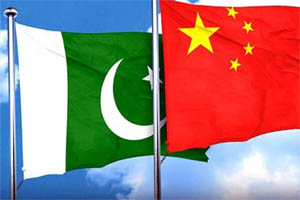
China’s investment in Pak power sector reaches $21bn
The Chinese investment in Pakistan’s power sector, under the umbrella of the China-Pakistan Economic Corridor (CPEC), has increased to $21 billion with the restoration of a powerhouse based on imported coal at Gwadar. Earlier, the government had almost abandoned the construction of a powerhouse based on imported coal at Gwadar, arguing it would not encourage more electricity generation on imported fuel and made a plan to set up a solar plant in its place. But, later it suggested to the Chinese government to convert the power plant based on Thar coal. The feasibility report did not favour employing Thar coal as the cost of transportation from Thar to Gwadar was found on the higher side. More importantly, the Chinese government refused to subscribe to Islamabad’s viewpoint and insisted on the restoration of the 300-MW powerhouse based on imported fuel. The official said: “Now we have restored the 300-MW project on imported coal, which will be made operational by December 2025.”
|
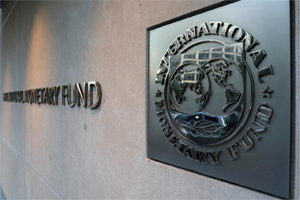
Pak-IMF deal: Dar hopeful of early SLA signing after meeting all conditions
Finance Minister said that Pakistan has “fulfilled all the conditions” of the International Monetary Fund (IMF) and hoped that the Fund will soon sign the staff-level agreement, paving the way for the release of $1.1 billion tranche. The two sides are engaged in tough talks to reach a consensus on multiple conditions since February before signing the deal, which also includes external financing from friendly countries. Pakistan had to complete actions demanded by the IMF, such as reversing subsidies in its power, export and farming sectors, hikes in the prices of energy and fuel, and a permanent power surcharge, among other measures. The IMF programme will disburse another tranche of $1.4 billion to Pakistan before it concludes in June. Funds from the lender will also unlock other bilateral and multilateral financings.
|
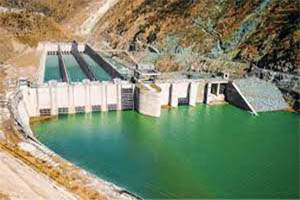
Neelum Jhelum Hydropower Project to restart power generation by end of July
After closure of almost a year, the 969-megawatt Neelum Jhelum Hydropower Project will restart power generation by the end of July. Power generation from Neelum Jhelum Hydropower Project had to be discontinued on July 4, 2022, following a malfunction that occurred in the tunnel. Neelum Jhelum Power Plant has two tunnels and there was blockage in one of the three and a half kilometers long tunnel. A spokesman for Water and Power Development Authority (WAPDA) has said that a significant development at the blockade in tail race tunnel of 969MW-Neelum Jhelum Hydropower Project has been achieved on Eid day. “Tunnel collapse of 150 ft length has been restored. Restoration works are continuing during Eid Holidays,” the spokesman said. Chairman WAPDA visited Neelum Jhelum Hydropower Project and witnessed construction activities on the remedial works. He appreciated the efforts of Project Team WAPDA, China Gezhouba Group Company (CGGC) and consultants of the project, he said. The Neelum-Jhelum power plant suffered a fault following the blockage of water in the tunnel area of 3.5 kilometers that led to the shutdown of the plant and termination of 969MW cheap electricity to the national grid.
|
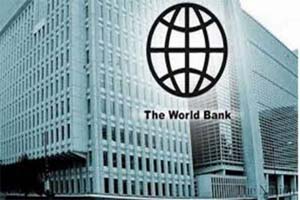
WB recommends Pakistan to end subsidies
Terming the rise in Pakistan’s fiscal deficit and debt as “dangerous” for its economy, the World Bank has made several suggestions to the country to counter this problem -- starting with the end of subsidies. To improve Pakistan’s economy, the World Bank, in its review report, has recommended debt management and establishing a single treasury account, saying that the country could save Rs2.72 trillion annually by eliminating unnecessary expenses and subsidies as they eat up 70% of the budget. Apart from increasing revenue, savings equivalent to 4% of the GDP were possible through these administrative measures, it added. According to the report, Rs315 billion could be saved by limiting the development budget.
|
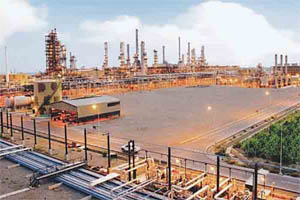
Upgrade, expansion of local refineries halted on policy delay
The upgrade and expansion of local refineries has come to a halt due to a delay in the approval of the Pakistan Refining Policy. The refining policy was submitted to the Cabinet Committee on Energy for approval a few months back; however, it is sitting on the table without giving any reason, sources in the local oil sector told on 19th April. Five local refineries have upgrade and expansion plans conditional with the approval of refining policy. However, the delay in its approval has put their plans in jeopardy. Sources pointed out that apart from the upgrade and expansion plans of local refineries, draft of the new refining policy also suggests the establishment of new deep-converted refinery. They attributed the delay in approval of new refining policy to hurdles, being created on part of the federal government departments. For instance, they pointed out that Federal Board of Revenue (FBR) is not in favour of this policy as production of petroleum products in the country would deprive it from the revenue it generates on the import of petroleum products, which is higher than the revenue generated on crude oil import. Also, chemical production at the petro chemical complex would also deprive it of the revenue. Planning Commission also opposed the tariff protection to existing refineries under the Pakistan Oil Refining Policy 2023 and urged to discourage it.
|
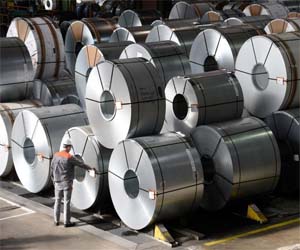
Steel imports halve amid economic slowdown
Imports of steel and scrap iron fell by over 50 per cent this fiscal year, data issued by the State Bank of Pakistan (SBP) revealed. The data also showed that the import of scrap iron and steel fell by 50.6pc to $859.3 million in the first nine months of FY23 against $1,739.5m during the same period last year. Further details disclosed that the import of iron and steel (finished product) fell by 36.6pc during 9MFY23 to $1,321m against $2,085m last year. Iron and steel is considered as the base material for the growth of an economy. Pakistan’s economic growth for the current fiscal year is already shattered and could hardly achieve 0.5pc growth. The sharp decline in the consumption of steel is also visible from the 11.59pc year-on-year decline in the Large-Scale Manufacturing sector in February. According to a detailed study conducted by Pakistan Credit Rating Agency (PACRA), steel consumption in Pakistan has been declining for the last five years, while the per capita consumption in Pakistan was much below the world average.
|
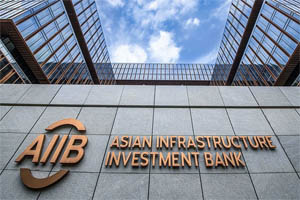
AIIB extends support for uplift projects
Asian Infrastructure and Investment Bank (AIIB) President Jin Liqun has extended the bank’s complete support and cooperation to Pakistan for development projects and investment. The development came during a virtual meeting between Finance Minister Ishaq Dar and the AIIB president as part of the International Monetary Fund (IMF), the World Bank Spring meetings 2023. Minister of State for Finance and Revenue, Special Assistant to Prime Minister (SAPM) on Finance, SAPM on Revenue and special secretary finance attended the meeting virtually from Islamabad. Ambassador of Pakistan to the US, State Bank of Pakistan Governor, the finance secretary and Economic Affairs Division secretary attended the meeting in person in Washington. According to a statement issued by the finance ministry on Saturday, Dar shared the current economic outlook of the country and apprised Liqun of the economic policies and reforms of the government for sustainable economic development. The finance minister thanked the AIIB president for his continuous support to Pakistan for the sustainable economic development of the country.
|

Industrial output falls for eighth straight month
Large-scale manufacturing (LSM) sector is continuously declining for the past eight months, with a contraction of 11.59 percent in February 2023 as compared to the same period last year, according to Pakistan Bureau of Statistics (PBS). This decline is a significant concern for the country’s economy, as the LSM sector accounts for almost one-fifth of its economic growth. As a result of this poor performance, the gross domestic product (GDP) growth will also suffer a significant blow this fiscal year. Industrial output witnessed a decline of 5.56 percent in July-February FY23 compared to the same period of last fiscal. Over the previous month (January 2023), LSM output went down by 0.5 percent. Both domestic and global factors have contributed to this decline, including high energy costs, rupee devaluation, and the government’s tightening of monetary and fiscal policies. These factors have limited imports due to a lack of dollars, contributing to the negative growth of the sector. Global economic slowdown has added to the woes of industries in Pakistan, with many businesses scaling back operations or reducing operating hours, while others have shut down their plants. Ongoing economic and political instability in Pakistan has also been linked to the decrease in industrial output by independent political economists.
|
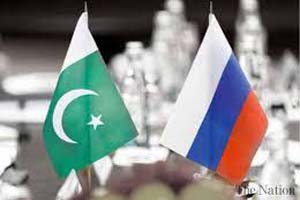
Pakistan to place first order to import discounted Russian oil this month
Pakistan’s State Minister for Petroleum Dr. Musadik Malik said that Islamabad would place its first order to import Russian crude oil at a “big discount” this month, as the country looks for cheaper fuel options amid macroeconomic challenges while trying to finalize an oil refinery project with Saudi Arabia. Russia agreed in principle to supply crude oil and oil products at cheaper rates this year and signed several memoranda of understanding with the country’s Energy Ministry. Islamabad’s energy imports during the last fiscal year were valued at $23.3 billion, constituting 29 percent of the country’s total imports. During the current fiscal year, Islamabad has already imported energy products worth $7.7 billion, according to the Pakistan Bureau of Statistics. Pakistan’s desire to look for cheaper sources of energy has been fueled by its crippling economic crisis after its official forex reserves dipped below $5 billion and its national currency underwent massive devaluation. Recently, representatives from state-owned oil companies of both Pakistan and Russia met port city of Karachi to conclude discussions on oil trade between the two countries.
|

MOL Group to invest $23 million in KP’s Tal block for E&P activities
Hungary-based oil and exploration company MOL has announced $23 million more investment in the Tal block in Khyber Pakhtunkhwa to inculcate impetus to indigenous oil and gas exploration and production, which could assist in mitigation of energy shortages in the country. The bidding process for an exploratory well ‘Razgir’ has begun, which would cost the TAL joint venture $23 million. MOL’s top management disclosed that in a correspondence to Prime Minister Mian Shehbaz Sharif. MOL wrote to the top man of the government heralding re-commencement of investment in the Tal block in KP province, after a pause of two and half years because of a pricing issue. The incumbent regime has resolved the pricing issue paving way for more investments in E&P activities in the country. MOL Group of Hungary, through its subsidiary MOL Oil & Gas Co Pakistan, has been actively engaged in Pakistan's oil and gas sector since 1999 and with its local joint venture partners; OGDCL, PPL, GHPL and POL contributing significantly to the energy security of Pakistan. MOL produces 23 percent oil, 9 percent gas, and 25 percent LPG, making its Tal JV block in KP the largest hydrocarbon-producing block in the country. MOL and its joint venture partners have so far invested $2.8 billion in Pakistan and are paying over Rs50 billion to the national exchequer annually in the form of taxes, royalties, and CSR contributions besides savings of over one billion US dollars in foreign exchange through oil import substitution.
|
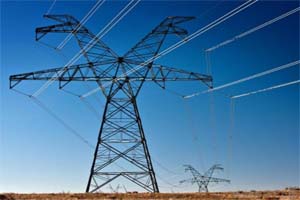
Energy imports fall 20pc in July-March FY23
Pakistan’s energy imports, including petroleum products and LNG decreased by 20 percent in the first nine months of the current financial year on the back of reduced demand. According to the energy imports data, oil imports excluding LNG plunged by 23 percent in the months under review, whereas the import of petroleum products were down by 31 percent during the first nine months of this fiscal. During the month of March, the import of petroleum products declined by 14 percent compared to the same month of last financial year, whereas these imports were up by 46 percent compared to February this fiscal. Energy imports including LNG were down by 15 percent in March this fiscal compared to March of last fiscal, whereas these were up by 10 percent compared to February this fiscal. Product wise import of petroleum products showed that import of high speed diesel (HSD) was down by 37 percent in 9MFY23 whereas these were down by 52 percent in March compared to March of last fiscal. The import of petrol decreased by 22 percent in nine months and was up by 11 percent in March compared to the nine months and March of last financial year respectively. Crude oil import was down by 11 percent in the nine months of this fiscal, which also declined by 16 percent in March this fiscal. LNG imports registered negative growth of 15 percent in 9MFY23 and also decreased by eight percent in March this fiscal compared to March of last fiscal. The decrease in imports of energy products has been attributed to low consumption of petroleum products due to their high prices. On year-on-year basis, oil sales recorded 39 percent decline in March 2023 due to fall in all major petroleum products; MS down 28 percent, HSD down 43 percent and FO down 70 percent. The low sales of petroleum products from formal channels has caused problems for the oil sector. The sector is especially feeling heat from smuggled Iranian oil.
|
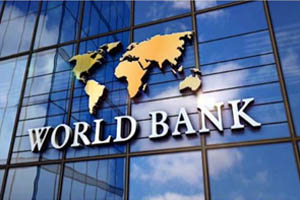
Stop funding loss-making SoEs: WB
Reducing losses and improving the financial viability of State-owned Enterprises (SoEs), a new World Bank report has suggested to the government to reduce or eliminate the longstanding practice of covering SoEs operating losses with transfers from the budget. With the government’s direct financial support to the 14 largest loss-making SOEs at 0.8 per cent and support to all SoEs reaching 1.4pc of GDP in the fiscal year 2021, the government should subject all SoEs financing requests to a more stringent review process, including submission of independently audited financial statements and credible business plan to reduce losses. Suggesting actions in the Public Expenditure Review 2023 focusing on ‘Reducing the Fiscal Impact of State-owned Enterprises’, the World Bank says tariff differential subsidy (TDS), that is, the difference between the tariffs that consumers face and the cost recovery tariff, should be revisited. The TDS is not an efficient instrument for reducing poverty as it is poorly targeted with most of the benefits accruing to the richer households. The government should instead consider alternative means of supporting the poor, such as disbursements through the Benazir Income Support Programme (BISP), which is much better targeted.
|
|

© 2023 Alpine Marine Services Private Limited
all rights reserved
|
|
|